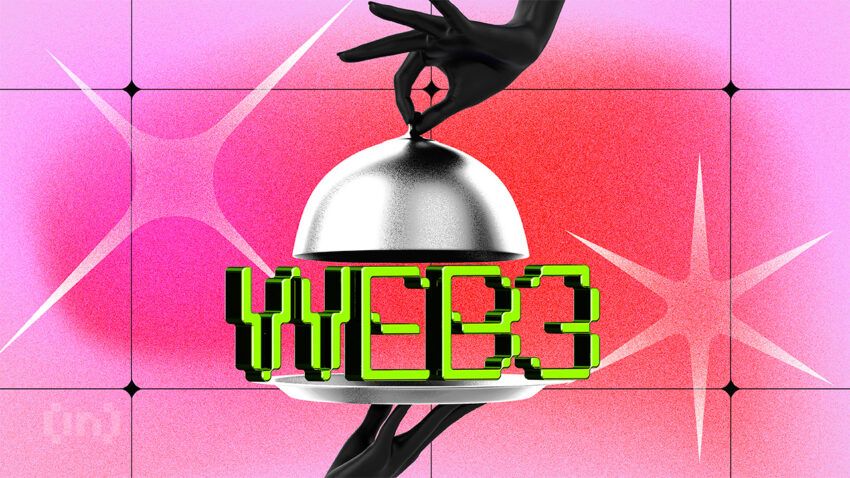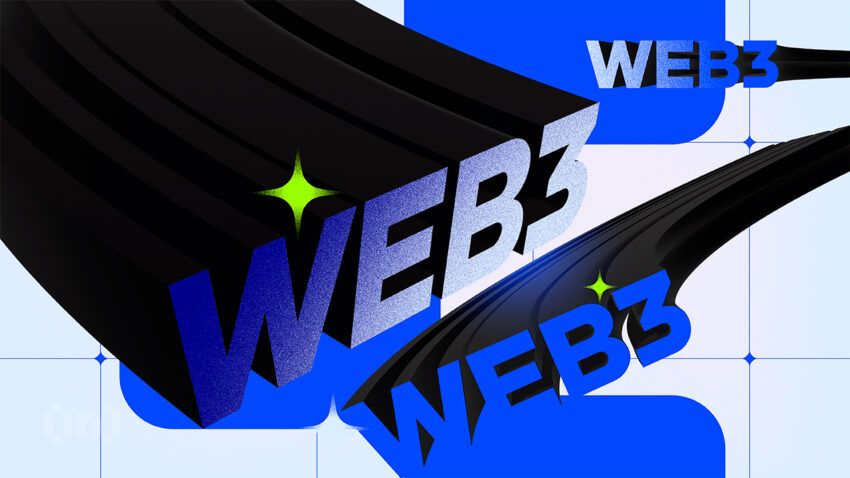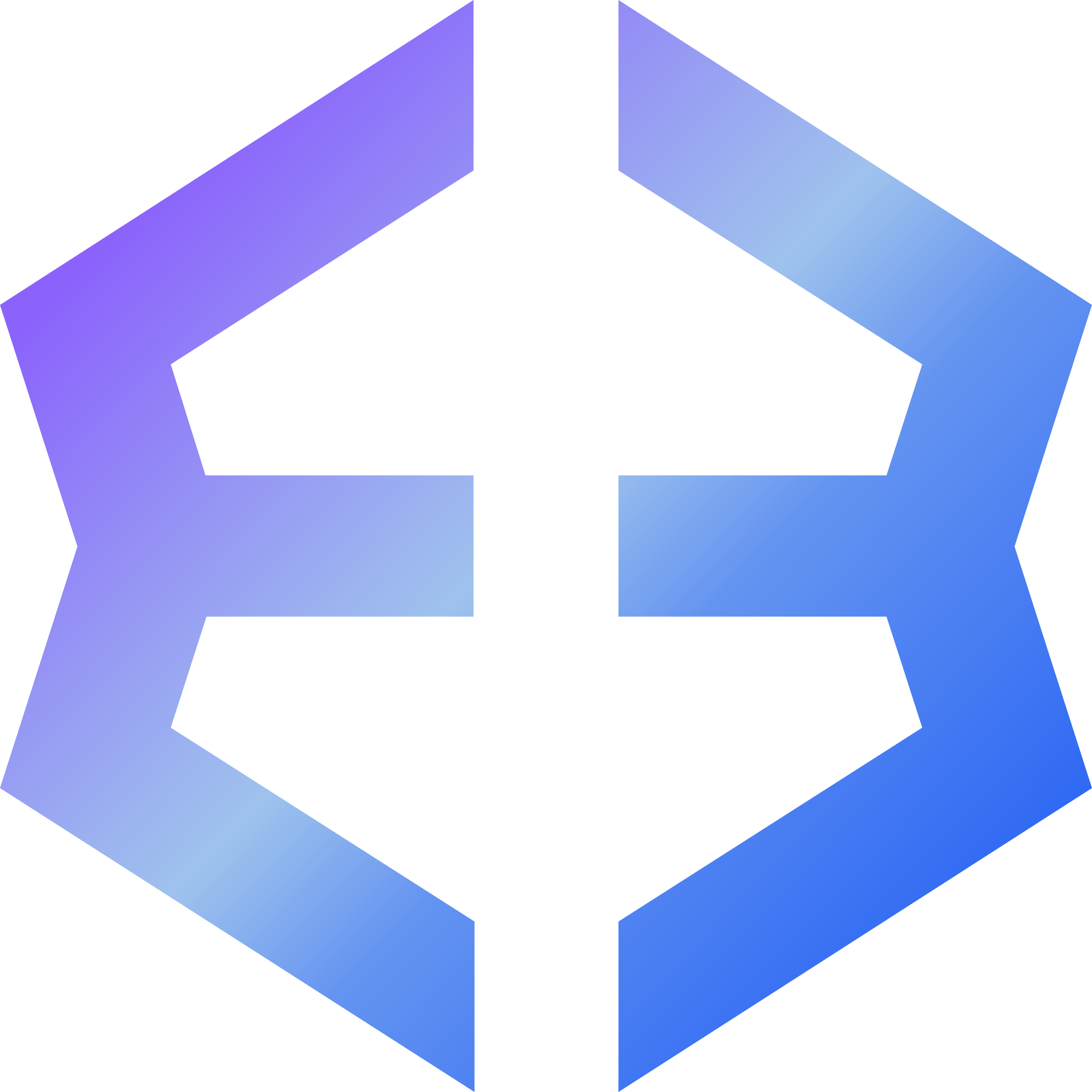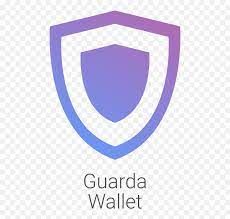Web3, often considered the third iteration of the internet, offers an environment based on decentralization, blockchain technologies, and token-based economics. So which crypto wallets are web3 friendly? This article explores the leading web3 wallets of 2024 and their critical role in the digital ecosystem.
Want to discuss web3 projects and get all hottest news on topic? Join BeInCrypto Trading Community on Telegram: read news on web3 and crypto, discuss it with like-minded people, ask questions and get answers from PRO traders! Join now
Methodology
Our process for selecting the top web3 wallets was extensive and conducted over a period of six months. Many factors were taken into consideration, such as security, features, crypto support, and more.
Exodus: As a web3 wallet, Exodus was chosen because of support for multiple assets, NFTs, DApps, and platforms support. It also supports in-app features like staking and fiat on-ramping.
Paybis: This is a werb3 wallet that is available on browser and mobile. It uses MPC technology to secure your wallet. Paybis stands out for its multiple payment options as well.
Coinbase Wallet: Coinbase Wallet is a Metamask alternative. It has similar features, such as a browser extension, mobile wallet, support for Ethereum and EVM chains, and more.
COCO Wallet: Is a wallet that uses MPC technology, biometric verification, and is seedless. This gives it a level of security not offered by many other wallets.
ZenGo Wallet: Another wallet that is password-less, seedless, and uses MPC technology and facial recognition technology to suit users.
OKX Wallet: Versatile, allowing users to send, receive, and trade. It is also portable because it comes as a mobile wallet or you can use it in web browsers.
YouHodler Wallet: Is available on Android and iOS. It also alows you to earn yield on your idle cryptocurrencies directly from inside the app.
Bitget Wallet: Available on browser and mobile. It uses Double Encryption Storage Mechanism (DESM), provides revolutionary security and protection.
Guarda Wallet: Platform agnostic, allowing for support on Android, IOS, Linux, Mac, Windows. Also has fiat on-ramps and a host of other features.
Metamask: This is the premier wallet for the Ethereum ecosystem. It has extensive support for EVM chains, ERC-20 tokens, and NFTs.
Rainbow Wallet: Comes with NFT support, WalletConnect integration, and large support for Ethereum. It also has an approved list of verified tokens.
Trust Wallet: Has many fiat on-ramps, allowing you to purchase crypto directly from inside of the wallet. It also has many features and support for many cryptocurrencies.
Argent Wallet: A smart contract wallet that has Ethereum , StarkNet, and zkSync support. It also integrates some Ethereum applications.
Math Wallet: Is a multi-chain wallet that supports over 100 popular blockchains. Your crypto is protected by private keys, mnemonic phrases, two-factor authentication, and other security measures.
Cypher Wallet: Cypher Wallet is another multi-chain wallet that allows access to layer 2 blockchains for bridging. It also ahs an in-app browser and fiat on-ramps.
FoxWallet: Is a protocol agnostic wallet that supports multiple chains, rollups, and testnets. It also has a native browser and in-app DApp exploration.
To learn more about BeInCrypto’s Verification Methodlogy, visit the link.
- What is a web3 wallet?
- What are the top web3 wallets?
- 1. Exodus
- 2. Coinbase Wallet
- 3. YouHodler Wallet
- 4. COCA Wallet
- 5. OKX Wallet
- 6. Zengo Wallet
- 7. Bitget Wallet
- 8. MetaMask Wallet
- 9. Paybis Wallet
- 10. Guarda Wallet
- 11. Rainbow Wallet
- 12. Trust Wallet
- 13. Argent Wallet
- 14. Math Wallet
- 15. Cypher Wallet
- 16. FoxWallet
- How do you set up a web3 wallet?
- Which web3 wallet is best?
- Frequently asked questions
What is a web3 wallet?

Web3 wallets are digital platforms that give access to the web3 space. They are similar to regular crypto wallets, allowing users to store, send, and receive cryptocurrencies. Moreover, through these wallets, users can interact with smart contracts, transact NFTs, develop blockchain platforms, and connect with communities. Web3 wallets create a wide range of valuable applications beyond the normal existing digital wallets out there. Usually, these wallets have built-in browsers.
They are non-custodial wallets, meaning you can transact more securely without worrying about middlemen like banks. Also, you have full control over your funds and don’t have to go through a series of KYC/AML steps while creating one.
Here are some of the major terms associated with web3 wallets:
- Public key: This is an alphanumeric string that allows you to deposit and receive crypto transactions.
- Private key: Similar to passwords, it is a large number used to confirm transactions. Everyone has access to web3 wallet public keys, but a private key allows you to claim ownership to access your funds.
- Seed phrase: It is a list of 12–24 random words used to retrieve a crypto wallet.
You can use your web3 wallet from anywhere in the world. Let’s explore its major benefits.
What are the top web3 wallets?
1. Exodus
We chose Exodus as a viable crypto wallet because it is a self-custodial wallet that does not compromise security. Users can secure their crypto assets through biometric verification, such as fingerprint and facial recognition. The app includes many features that you would normally have to use outside of a wallet. These features include staking, a DApp browser with trusted sites, and fiat on-ramps, limiting the potential for encountering scams and phishing sites and adding another layer of security.
Exodus provides 24-hour customer assistance and an online help center for quick responses to concerns. In addition to secure trading and staking options, it offers real-time charting for efficient portfolio management.
Install the Exodus app on your device.
Open the app and navigate to the home page.
Select “Create Account”.
Choose “Secret Phrase”.
Enter the phrase you received upon creating your account (Note: Typically, the secret phrase is generated during the creation process and must be securely stored).
Tap “Next” at the bottom of the screen to proceed.
2. Coinbase Wallet
Coinbase Wallet is another self-custody wallet that offers access to thousands of tokens and DApps. It allows you to store your NFTs (ERC-721 tokens) in one place. The wallet provides seamless access to decentralized finance (DeFi), and you can link your Ethereum tokens to many DeFi projects. In addition, users can partake in online airdrops, which increases their chances of getting free crypto coins. You can also use DeFi liquidity pools to lend or borrow and swap assets on the available decentralized exchanges. Notably, the wallet supports ICOs, which helps users explore new coins at the best possible prices. Furthermore, you can harness the decentralized web on your phone or browser and explore crypto-friendly stores.
With Coinbase wallet, you can also become a DAO member and participate in big web3 projects. The wallet is keen on securing users’ details, as it stores the private keys locally and employs 2FA to maintain access. In addition, the Coinbase wallet uses a four-digit security PIN, which can unlock the wallet and help confirm transactions.
Download the mobile app and choose “Create new wallet”.
Accept the Privacy Policy and Terms of Service.
Set a unique username.
Set username privacy preferences.
Choose a security method (biometrics or passcode).
Backup and confirm your 12-word recovery phrase.
3. YouHodler Wallet
YouHodler Wallet is on our list since it offers an all-inclusive crypto platform. Some products include a desktop and mobile wallet and a range of additional features. This platform aspires to be a comprehensive solution for all crypto storage requirements.
With YouHodler, you can access over 50 assets, including all the major ones. The wallet can be conveniently accessed via a web browser on a computer or Android and iOS mobile devices. Furthermore, intriguing features are available, such as earning up to 12% APR on your crypto holdings, accessing loans with up to 90% loan-to-value, and employing yield-generating strategies to enhance your crypto experience.
Visit Youhodler using the link provided.
Fill in the registration form, including country, email, and password.
Verify your email with the sent code.
Complete phone verification with SMS code.
Go to “Profile” to start identity verification.
Upload ID documents, take a selfie, and verify the address with the provided documents.
4. COCA Wallet
We picked COCA Wallet because it introduces a revolutionary approach to digital finance with its MPC Wallet and non-custodial debit card, making it a standout in crypto wallets. Launched with recognitions like ‘#1 Product of the Day’ on Product Hunt and accepted into Money20/20 Asia’s startup program, COCA Wallet signifies a leap in secure and convenient digital finance.
The wallet leverages MPC technology to eliminate traditional security vulnerabilities, offering a safer and more intuitive way to manage cryptocurrencies and fiat money. With advanced biometric verification and a unique routing engine, COCA Wallet ensures the best rates for crypto transactions while enabling secure, fee-free cross-chain swaps.
Download the COCA Wallet app.
Sign up with your email address.
Complete the email verification process.
Choose a secure PIN and/or enable biometric registration.
Secure your account with biometric data and a unique recovery file.
5. OKX Wallet
The OKX Wallet is a top contender on our list. The wallet is designed to provide users with a secure and convenient way to store, manage, and trade various cryptocurrencies. It offers features such as multi-currency support, built-in trading capabilities, easy access to the OKX exchange, and options for staking and earning rewards. The OKX Wallet is available for mobile devices and web browsers, allowing users to access their crypto assets and manage their portfolios on the go. The wallet also includes an asset recovery feature. MPC technology eliminates the need for traditional keys and seed phrases by splitting a user’s private key into three parts.
Download the OKX Wallet extension for Firefox or Chrome.
Opt to create a new wallet or restore an existing one.
Set a wallet password.
Back up your seed phrase securely.
Verify seed phrase backup for confirmation.
6. Zengo Wallet
We picked Zengo as a viable web3 wallet because it prides itself on its user-friendly interface. Zengo supports over 120 cryptocurrencies, with more to come as the product matures. The platform supports most major tokens, including Bitcoin, Ethereum, Tether, Dogecoin.
They’ve replaced the traditional private key with two mathematically created secret shares. One share is kept on your mobile device, while the other is sent to the Zengo servers. This is somewhat common to custodial wallets. With custodial wallets, exchanges hold your private keys on their servers.
Furthermore, everything is encrypted with a 3D biometric scan of your face. With this mobile wallet, you can earn interest on select coins and tokens and swap and store your digital assets. The mobile app is globally available; however, features such as third-party payment providers are region-specific.
Download the Zengo app.
View the introduction slides, and enter your email.
Verify your email and enable FaceID.
Set up a Recovery Kit for account security.
7. Bitget Wallet
Bitget Wallet serves as a comprehensive non-custodial hub for web3, bringing together crypto swap, staking, trading tools, on-chain data, a DApp browser, and an NFT marketplace — all within a single platform. Supporting 100+ blockchains, 20,000+ DApps, and 500,000+ tokens, it enables seamless multi-chain trading and asset management across hundreds of DEXs and cross-chain bridges.
Bitget Wallet offers diverse wallet options such as mnemonic, MPC keyless, Account Abstraction (AA), watch-only, and hardware wallets, backed by a robust security system with a $300 million protection fund. In 2024, it doubled its user base to over 40 million, becoming the most downloaded web3 wallet globally.
Bitget Wallet also launched Bitget Wallet Lite, a multi-chain Telegram wallet designed for enhanced user-friendliness. Built on the Bitget Onchain Layer and powered by its ecosystem token, BWB, the wallet ensures seamless and secure DApp interactions. Committed to onboarding the next billion users, Bitget Wallet is driving the future of decentralized finance with accessibility and security at its core.
1. Launch the Bitget Wallet app and select “Create a Wallet”.
2. Decide on wallet type: mnemonic phrase (12 or 24-word), MPC keyless wallet; or import an existing wallet. You can also connect a hardware wallet or add a watch-only wallet.
3. If you choose the mnemonic phrase, go to “My Wallet” and select the backup option for securely backing up your mnemonic phrase.
4. You can create an MPC keyless wallet by email, Google account, Apple ID, or Telegram account.
5. Store your wallet securely by setting up security measures such as a PIN code.
You can also create a wallet within Telegram by simply setting a PIN code. Your seed phrases are securely backed up to the cloud.
8. MetaMask Wallet
We chose MetaMask as a viable web3 wallet candidate. It is a non-custodial wallet that allows you to buy, store, send, and swap tokens. It’s available as a browser extension on Chrome and other popular web browsers. MetaMask is available on both Android and iOS.
It’s essentially built for the Ethereum Blockchain, where users can save Ethereum and other ERC-20 tokens. MetaMask also allows users to explore many decentralized apps by providing a secure way of integrating projects and interacting with on-chain applications.
For more advanced users, MetaMask allows you to interact with DApps in a permissionless approach. This means that you don’t need to link your private keys to DApps, making the whole process much safer. While the wallet is mainly for the Ethereum Blockchain, it offers seamless access to other EVM-compatible networks, including Binance Smart Chain, Polygon, HECO, and more. You can also create many wallets with one app.
Download the MetaMask extension/app.
Install MetaMask and select “Get Started”.
Choose “Create a Wallet” and agree to the terms if prompted.
Create a strong password.
Store the provided seed phrase securely.
9. Paybis Wallet
We chose Paybis since it’s well-known for its straightforward and intuitive design, making crypto trading a breeze for users. With a sleek interface and speedy payouts, it blends the security of non-custodial wallets with the convenience of custodial ones. Advanced MPC technology ensures top-tier security, as Paybis never fully stores the private key. Users can also check their funds on any blockchain explorer with specific addresses. Finally, Paybis stands out for its fast security procedures and multiple payment options, such as credit/debit cards, Google Pay, Apple Pay, ACH transfer, and Skrill.
– Visit Paybis using the link below
– Enter your email and use the code sent to you to verify it.
– Next, enter and verify your phone number using another code sent by Paybis.
– Read and agree to the terms, refund, and privacy policy.
10. Guarda Wallet
From our perspective, Guarda Wallet is a non-custodial multiplatform crypto wallet. It offers a multifunctional platform that caters to the diverse needs of its users. It is a safe and secure digital wallet for many cryptocurrencies and tokens and extends its functionality by offering a prepaid Visa card. This card bridges the gap between digital currency and traditional financial systems.
The prepaid Visa card provided by Guarda can be used like any regular bank card, granting access to shop or make transactions in any country where Visa is accepted. Whether you’re an Android user or have an iOS device, Guarda has you covered. Their dedicated mobile applications ensure that users can access their wallets, manage their assets, and utilize the prepaid Visa card features right from their smartphones.
Visit Guarda.com and select “Launch app”.
Click “Create a new wallet”.
Choose a password
Confirm you’ve safely stored the password by selecting “I’ve written it down”.
Download the prompted backup file.
Safely store the backup, as it contains encryption for all private keys.
11. Rainbow Wallet
We had to include Rainbow as a top web3 wallet. Rainbow is a non-custodial, fun, easy-to-use, and secure wallet that allows users to create an Ethereum wallet, collect NFTs and explore the web3 sector. The wallet offers a series of innovative features, such as NFT support, WalletConnect integration, and more. The Rainbow Wallet offers an easy-to-use platform that provides users with an inbuilt swap functionality. This allows you to transact between multiple ERC-20 tokens without an external exchange. This wallet also ensures you don’t fall victim to scam projects, so it has an approved list of verified tokens safe to swap.
Rainbow Wallet prioritizes security, allowing users to store their encrypted private key in iCloud for seamless account recovery. If you have a problem keeping your seed phrase secure, Rainbow wallet will enable you to back it up so you don’t lose access to it.
Download Rainbow from the App Store.
After installation, choose to create a new wallet or import an existing one.
For new wallets, follow the on-screen prompts.
For existing wallets, import via private key, Ethereum address, or ENS name.
Access the wallet address via the “Copy address” button.
Store any backup or recovery details securely.
12. Trust Wallet
Trust Wallet is a web3 wallet that provides diverse access to millions of cryptocurrencies and NFTs hosted on different blockchains, including Ethereum and Binance Chain. It works well on mobile devices, and it is effortless to navigate the app. It only requires a few minutes to set up. Trust Wallet also allows users of other wallets, like MetaMask or MyEtherWallet, to import their details using their secret phrase or private key.
Users can earn rewards on their holdings by locking up their funds directly from their wallets. Trust Wallet also provides an inbuilt browser for DApps, so you have direct access to your favorite DeFi products and discover new ones, all within one or two dashboards.
In terms of security, the wallet is secured by a 12-word recovery phrase and accessible on Android and iOS using PIN or biometrics. Perhaps one setback to this wallet is that it doesn’t support 2FA, meaning if someone intrudes on your account, you can’t entirely stop their access as you can’t set up a confirmation code to email or text message.
Download Trust Wallet.
Install and open the app, then click on “Create a new Wallet”.
Accept the terms and continue.
Securely back up the provided 12-word recovery phrase.
Verify the recovery phrase by filling in the words in the correct order.
Confirm wallet creation.
13. Argent Wallet
We chose the Argent wallet as a viable web3 wallet because this wallet allows you to buy, earn, stake, and trade on Ethereum layer-2 with low fees. Ultimately, the Argent wallet was developed to integrate Ethereum DApps into a single application with a comprehensive interface. It goes all-in for Ethereum, supporting only all Ethereum-based tokens and NFTs.
Argent wallet offers “bulletproof security,” meaning users can easily recover their wallet without a seed phrase. Instead, it uses a “social recovery” method, which revolves around nominating close relatives, “Guardians,” to help confirm a user’s account in case of a lost or new device.
The wallet integrates many of Ethereum’s platforms, such as Compound and Kyber, letting you earn by staking tokens within the app without an in-app browser. Argent combines these into its mobile app, easing the whole process of investing. It also supports WalletConnect for tokens that are not directly integrated into the Argent wallet.
Using Chrome, navigate to the Argent website.
Click “Create a new wallet”.
Review the disclaimers and select “Continue”.
Create a unique password for your Argent X wallet.
Click on “Finish” to complete the wallet setup.
To use Argent X, navigate to “Extensions” in Chrome.
14. Math Wallet
The Math Wallet describes itself as the multichain wallet of the web3 and deserves a spot in our list. It impressively supports tokens and coins on over 100 blockchains. This multichain mobile wallet is available on Android and iOS and doubles as a mobile extension. The mobile app houses standard wallet features, such as sending and receiving, while allowing users to access Dapps.
This gives users exposure to decentralized finance inside of their mobile devices. MathWallet also offers the ability to stake cryptocurrency directly from the app. The wallet imposes a 21-day lock on staked cryptos and a 28-day withdrawal hold, which can increase network security.
Math Wallet is non-custodial. Currencies are protected by private keys, mnemonic phrases, two-factor authentication, and other security features that users can select. It is a good fit for new or experienced cryptocurrency users who want a user-friendly web3 experience.
Private keys, mnemonics, two-factor authentication, and security locks are just a few of MathWallet’s many security features. Also, it provides hardware support choices through Ledger. If you have a hardware device that you want to store your digital assets on while you’re not trading, MathWallet has everything you need.
Install Math Wallet.
Set a password with a minimum of 8 characters.
Inside the wallet, select a blockchain.
Confirm your wallet password.
Make sure to backup the private key securely.
15. Cypher Wallet
We chose the Cypher Wallet since it seamlessly bridges across blockchains. You can connect to your favorite DApp in multiple ecosystems and manage your entire crypto portfolio within this non-custodial wallet. It’s a multi-chain wallet that does everything. Cypher has a specific focus on seamless usability. It allows access to L2 ecosystems for bridging. In addition, the wallet also has a built-in browser. This gives the user exposure to their favorite decentralized finance applications. Instead of creating and maintaining multiple wallets, you can now access the web3 all in one place. If you want a simple fiat on-ramp experience, you’ll be happy to know that this wallet has third-party payment providers.
Install the Cypher Wallet app.
Create a new wallet.
Secure your wallet with a seed phrase.
Fund your wallet.
Manage your wallet.
16. FoxWallet
Last but not least on our list is FoxWallet. FoxWallet is a user-friendly, non-custodial, and decentralized Web3 wallet dedicated to providing an entry point and connection to the Web3 world. The wallet’s developers have extensive experience in blockchain and network security, and the code has been audited by reputable institutions, making it trustworthy.
The most impressive quality of FoxWallet is that it is feature-rich. Users can send and receive transactions and buy many cryptocurrencies directly within FoxWallet. Furthermore, you can access Etherscan without leaving the mobile app, allowing you to confirm transactions in the blink of an eye.
On top of this, there are popular, in-built, and verified bridges to connect you to multiple chains and rollups. With this many options, users need not leave the app to conduct most of their web3 activities.
Navigate to the FoxWallet platform.
Select “Create wallet”.
Enter the desired “Wallet name”, “Password”, and a “Password reminder”.
After completing all details, click “Submit”.
Confirm any additional prompts or verifications.
Start using your new FoxWallet.
| Platform name | Best Feature | Platforms |
| Paybis Wallet | Best for user-friendly crypto trading | Android, iOS, browser extension |
| Coinbase Wallet | Best for broad DeFi and NFT interactions | Android, iOS, browser extension |
| COCA Wallet | Best for unmatched Multi-Party Computation (MPC) security | Android, iOS |
| Zengo Wallet | Best for user-friendly, biometric-secured storage | Android, iOS |
| OKX Wallet | Best for integrated trading and crypto management | Android, iOS |
| YouHodler Wallet | Best for maximizing crypto holdings and loans | Android, iOS |
| Bitget Wallet | Best for advanced trading and security features | Android, iOS, browser extension, Web interface |
| Guarda Wallet | Best for extensive multi-chain token support | Android, iOS, Linux, Mac, Windows |
| MetaMask Wallet | Best for Ethereum-based DApp integration | Android, iOS, Linux, Windows, Mac |
| Rainbow Wallet | Best for Ethereum-based DApp integration | Android, iOS, browser extension |
| Trust Wallet | Best for diversified cryptocurrency accessibility | Android, iOS, browser extension |
| Argent Wallet | Best for seamless Ethereum Layer 2 activities | Android, iOS, Chrome Extension (Argent X) |
| Math Wallet | Best for extensive multi-chain integration | Android, iOS, browser extension |
| Cypher Wallet | Best for seamless blockchain bridging | Android, iOS |
| FoxWallet | Best for diverse web3 functionalities | Android, iOS |
| Exodus Wallet | Best for enduring web3 innovations | Android, iOS, Linux, Android, Mac |
How do you set up a web3 wallet?

A web3 wallet is fundamental for engaging with cryptocurrencies and decentralized applications. Here’s a general guide on how to set up a crypto wallet, though the specific steps may vary depending on the platform you choose:
- Choose your wallet: Select a web3 wallet that supports the cryptocurrencies you are interested in and offers the necessary features. Popular options include Coinbase, OKX, and Zengo Wallet, among many others.
- Download and install: Download the wallet application from a reliable source and install it on your device. For browser-based wallets, add an extension to your web browser.
- Create a new wallet: Open the application and choose to create a new wallet. Follow the on-screen instructions.
- Secure your wallet: Set a strong password and back up your recovery phrase. Store this phrase in a secure location—this is critical as it’s your only way to recover your wallet if you forget your password or your device is lost.
- Deposit funds: Transfer cryptocurrency into your new wallet from an exchange or another wallet.
- Start using your wallet: You can now use your wallet to send, receive, and manage your cryptocurrencies and interact with decentralized applications!
Remember, the specific process can differ based on the wallet platform, so it’s crucial to follow any additional instructions the platform provides.
Which web3 wallet is best?
If you’re looking for secure software to store your crypto and simultaneously interact with web3, you must choose a suitable web3 wallet. These wallets store your private keys securely, allowing you to send and receive crypto assets like Ethereum, Bitcoin, Solana, while interacting with wider decentralized ecosystems. There are hundreds of wallets there, but the above options are the most popular and reliable platforms to start with in 2024. The best wallet for you will be one that supports your chosen assets and the DApps you want to interact with. Remember to always prioritize crypto wallet security, stay vigilant, and watch out for scams.
Frequently asked questions
A web3 wallet enables users to interact directly with decentralized applications (DApps) on the blockchain, facilitating seamless transactions without intermediaries. It offers enhanced privacy and security by giving users complete control over their private keys and associated assets. These wallets support a wide range of cryptocurrencies and tokens, providing flexibility and convenience for managing diverse digital assets.
Creating a web3 wallet is very simple. You merely download the wallet and store your seed phrase. Some of these wallets have advanced features, and may require you to provide your personal information. Remember, the process may vary depending on which platform you use.
As more functionality is added to web3, more wallets are popping up. There are many web3 wallets available. Most platforms count dozens; however, the actual number is unknown.
Trust Wallet is considered a web3 wallet. It has multiple functionalities, including storing various digital assets and connecting with decentralized exchanges directly from the app. It is available on mobile, allowing users to manage their cryptocurrencies and interact with blockchain networks on the go. This mobile accessibility ensures users can engage with the crypto ecosystem anytime, anywhere, enhancing the overall user experience.
Though there is no formal definition at this point in time, a web3 wallet is generally considered to have a combination of multiple functionalities. This includes multi-chain support, browser extension, NFT support, bridges, DeFi protocols or DApp’s connection, and many other functionalities. Metamask is an example of a web3 wallet.
A web3 wallet is a digital platform that offers access to the web3 space. These wallets are similar to regular crypto wallets that allow users to store, send and receive cryptocurrencies.
The best web3 wallet can vary significantly depending on individual needs and preferences. Some users might prioritize ease of use and user interface, making wallets like MetaMask or Coinbase Wallet appealing due to their straightforward, user-friendly design. Others may prioritize security and opt for hardware wallets like Ledger or Trezor, which protect by storing private keys offline.
Yes. Coinbase Wallet is a non-custodial wallet that grants access to several web3 features, allowing users to discover and use Ethereum-based DApps directly via its in-app browser.
Yes. MetaMask is a widely known web3 wallet built to work with all Ethereum-compatible blockchains. It facilitates direct interactions with decentralized applications (DApps) and decentralized finance (DeFi) platforms, allowing users to manage, receive, and send Ethereum and various ERC-20 tokens.
Disclaimer
In line with the Trust Project guidelines, the educational content on this website is offered in good faith and for general information purposes only. BeInCrypto prioritizes providing high-quality information, taking the time to research and create informative content for readers. While partners may reward the company with commissions for placements in articles, these commissions do not influence the unbiased, honest, and helpful content creation process. Any action taken by the reader based on this information is strictly at their own risk. Please note that our Terms and Conditions, Privacy Policy, and Disclaimers have been updated.



















